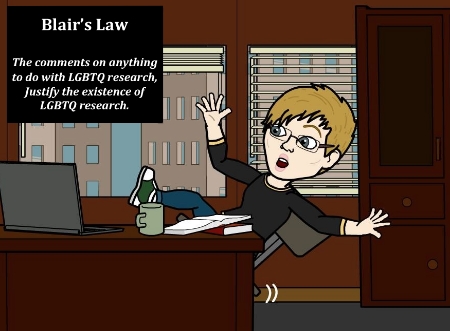I’ve written about inclusive research practices before, and have placed an emphasis on the importance of including gender and sexual minorities in relationships research. Although psychological research in general has come a long way in being more inclusive with respect to studying topics of relevance to LGBTQ populations, close relationships research still seems to be a bit slow on the uptake. But, to be fair, it can be sometimes difficult to really judge what is currently going on in a field if one only relies on the currently published articles available in scientific journals. After all, not all research gets published, and even when it does get published, it is often years after the initial study was designed. Consequently, a survey of the most recently published close relationships articles might only provide a ‘snapshot’ of the research practices that were prevalent between 2010 and 2013 (or even earlier). Perhaps a better opportunity to get a more current snapshot of the field’s practices is by examining poster presentations at a large conference, such as the Society for Personality and Social Psychology’s Annual Meeting. The advantage of examining poster presentations is that they tend to be reporting more recently conducted research and they provide a sampling of studies that have already been published, those in the process of being published, and those that will never be published (either because they get rejected or because publication just isn’t pursued).
Read MoreThe Assumption of Bias in LGBTQ Research
In a recent post on the GapJunctionScience blog, Sari van Anders pointed out that one connection between science and feminism is their seemingly equal ability to bring out nasty comments.
Read MoreCan Crowdfunding Be A Successful Alternative for Academics in Need of Funding?
As technology progresses, we take the good with the bad and make the most of it – hopefully usually finding that progress makes our work more efficient or more interesting. One of the latest gifts that the Internet has bestowed upon the field of Science is the concept of crowdfunding. Crowd what? Crowdfunding is the process of putting your idea “out there” and seeking financial support from the “people of the Internet.”
Read More"I'm Straight. LGBTQ Participants Wouldn't Trust Me, Would They?"
Yep. I’ve heard this reason given by researchers as to why they do not include LGBTQ participants in their studies. By this logic, I suppose I shouldn’t have any heterosexuals in my studies! Ludicrous!
Read MoreExclusion Based on Vulnerable Population Status
We need to justify our use of a vulnerable population. I have heard this reason from a number of researchers, often ones who would very much like to include LGBTQ individuals in their sample, but who feel that their hands are tied in doing so because their institution or review board (or both) require that they justify the use of any subjects belonging to a ‘vulnerable population.‘
Read More
Reasons for LGBTQ Exclusion in Research
For the most part, I often find the “reasons” touted for not including LGBTQ participants to be more along the lines of excuses.
Read More



